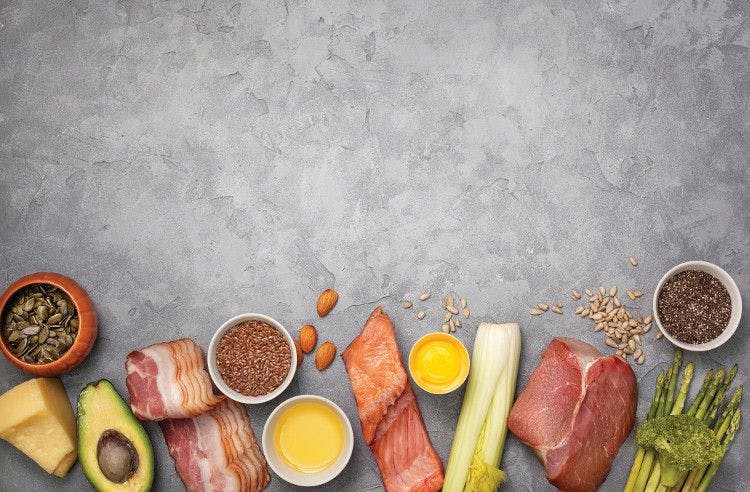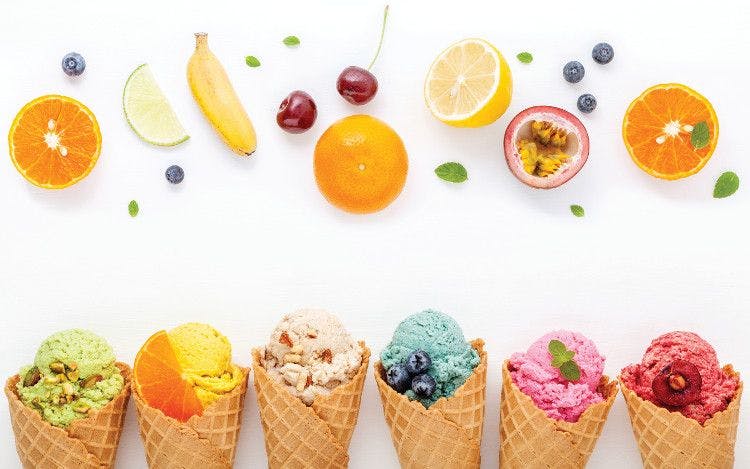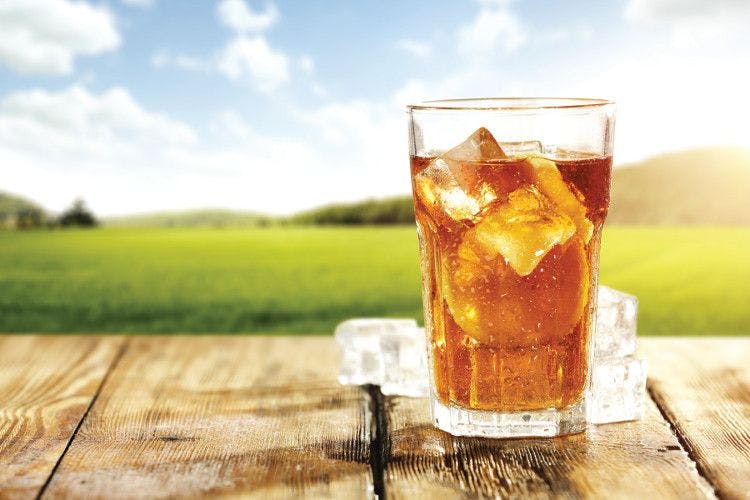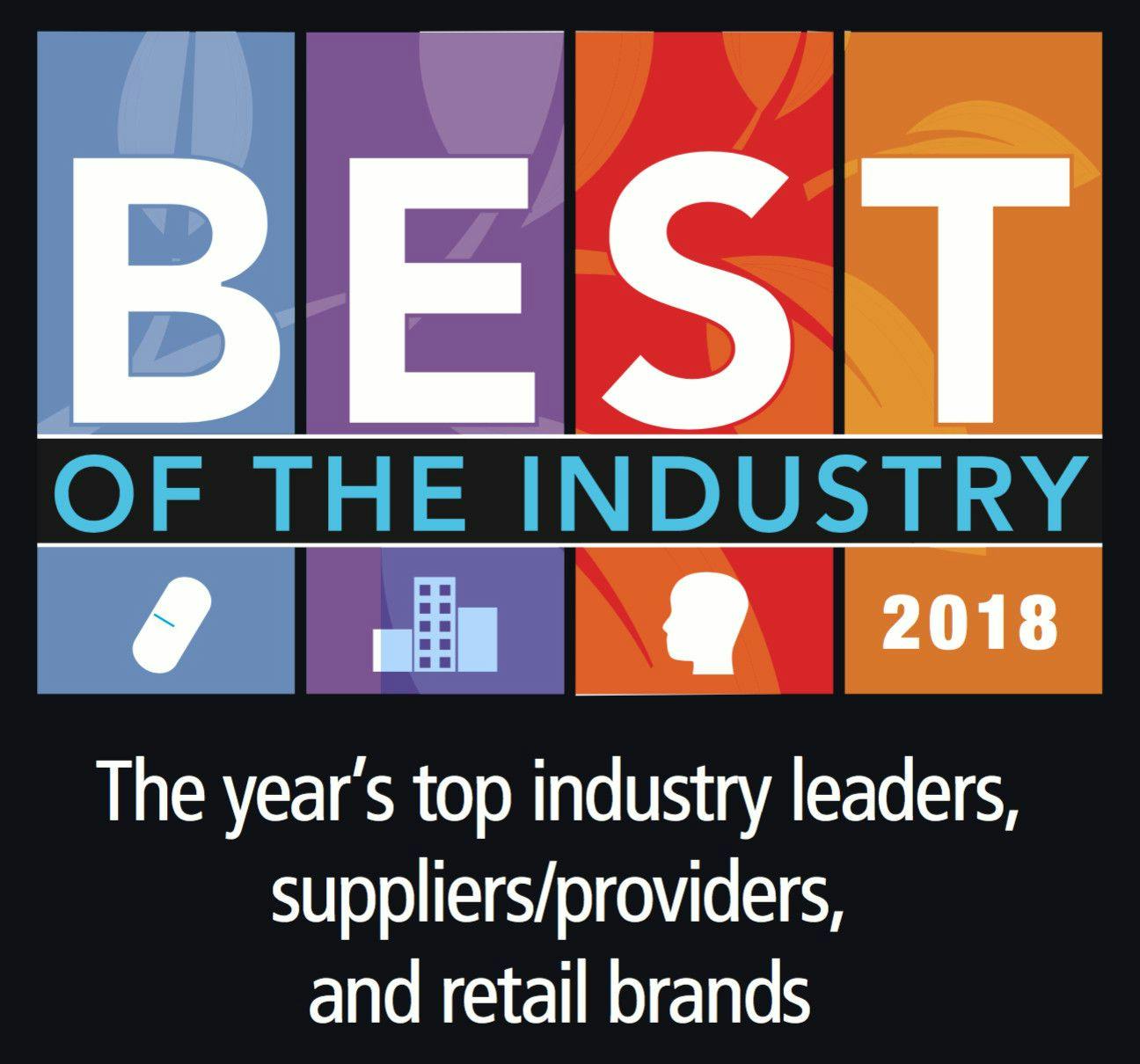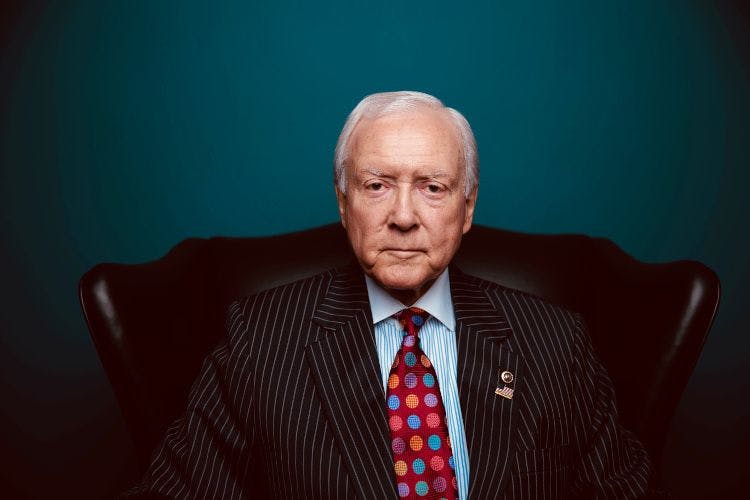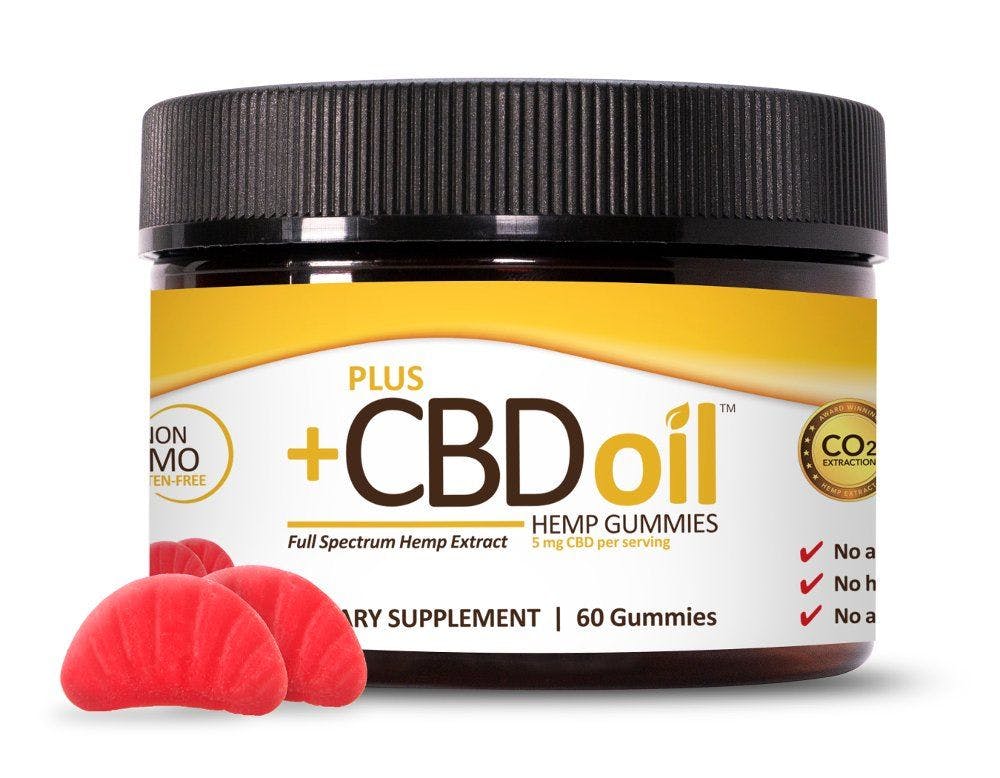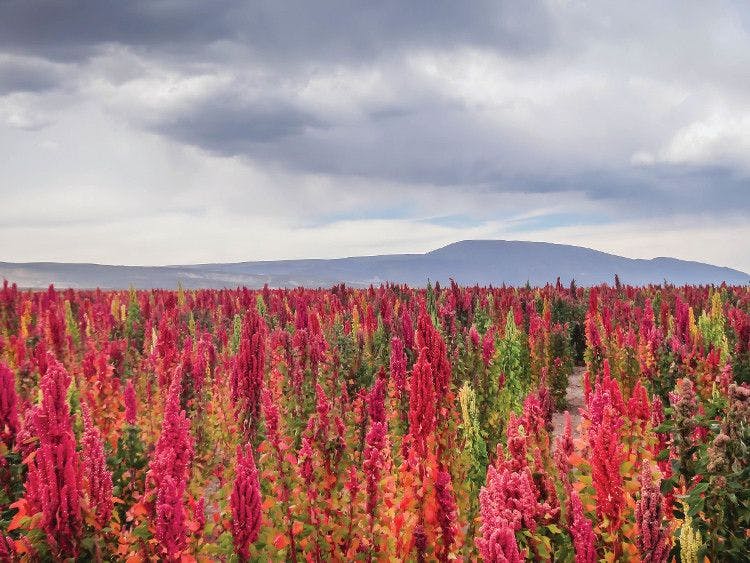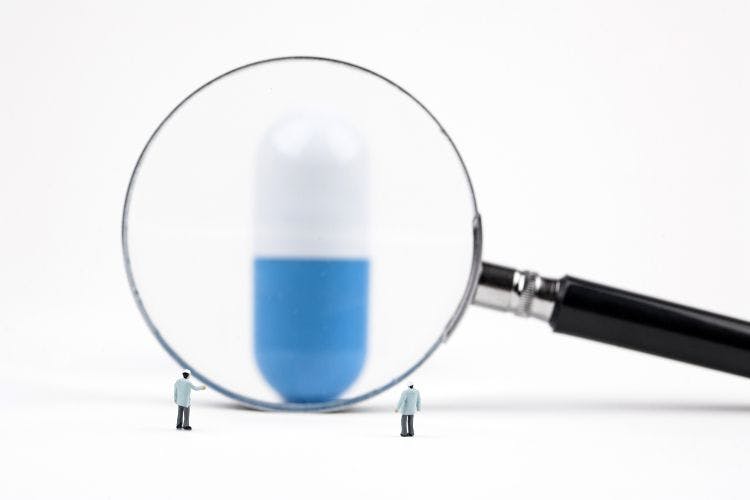Nutritional Outlook’s 2018 Best of the Industry Awards, Retail Brand/Product: CV Sciences
CV Sciences is leading the CBD industry with a monumental GRAS self-determination.
Photo from CV Sciences
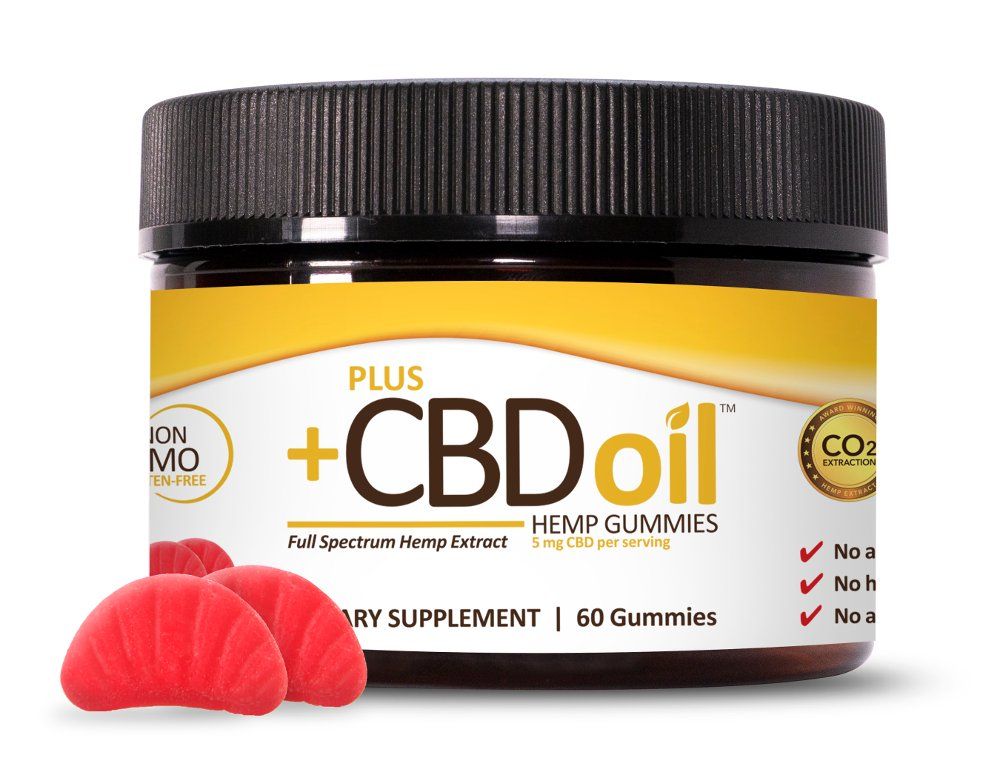
These days in the dietary supplement industry, no one, it seems, can get away from the topic of CBD. Hemp-derived cannabidiol (CBD) has taken the industry by storm, with more products and players popping up in the market every day and multitudes of questions raised at industry events: Is it legal? Are firms selling CBD taking a risk? And what about that Investigational New Drug (IND) application belonging to CBD drug firm GW Pharmaceuticals, which many cite as the primary reason FDA still says products containing CBD are not an authorized dietary supplement ingredient?
All are worthy questions, but one of the most salient questions is whether or not CBD is actually safe for human consumption. One hemp-derived-CBD company, CV Sciences (San Diego, CA), has taken a leadership role in demonstrating the safety of its ingredient and trying to chart a responsible path to market. In September, CV Sciences announced a monumental achievement: it now has a Generally Recognized as Safe (GRAS) self-determination for its proprietary hemp extract used to make the products in the company’s bestselling PlusCBD Oil Gold Formula consumer product line. This GRAS self-determination stems from a battery of toxicology studies commissioned by the company on its ingredient. These studies, conducted by scientific and regulatory consultant AIBMR Life Sciences (Seattle, WA), are said to be the first published toxicology studies since 19811 on a hemp extract that contains naturally occurring CBD. CV Sciences’ ingredient is a hemp extract comprising a full spectrum of naturally occurring phytocannabinoids, including CBD, as well as fatty acids, terpenes, plant sterols, and vitamin E in all of its isomers. It is produced via supercritical CO2 extraction of the aerial parts of the hemp plant (Cannabis sativa) and contains approximately 25% CBD overall.
At this point, it should be mentioned that in March of this year, leading hemp foods brand Manitoba Harvest announced an industry-first GRAS self-determination for the company’s hemp seeds, hemp oil, and hemp protein powder products for foods, with the company submitting its GRAS notification to FDA. There is a marked difference, however, between Manitoba Harvest’s products-seeds, oil, and protein powder-and what CV Sciences has obtained a GRAS determination for: a CBD-rich, full-spectrum hemp extract. In short, CV Sciences’ GRAS self-determination represents the first GRAS assessment of its kind to be performed on a hemp extract containing naturally occurring CBD. In fact, the toxicology studies done on CV Sciences’ Gold Formula CBD are “not only the first peer-reviewed toxicology work published on a hemp extract since 1981 but the first toxicology work published on a natural CBD-containing extract ever,” says Stuart Tomc, vice president of human nutrition for PlusCBD Oil.
John Endres, chief scientific officer for AIBMR Life Sciences, the company that placed, monitored, and published the OECD- (Organisation for Economic Co-operation and Development) and FDA-compliant toxicology studies as well as the GRAS self-determination for CV Sciences, explains the five tests included in the toxicology study, which is now published in the Journal of Toxicology (June 2018).2 These tests include: 1) an AMES bacterial reverse mutation test (testing for mutagenicity), 2) an in vitro mammalian chromosomal aberration test (testing for clastogenicity, or chromosomal damage), 3) an in vivo mouse micronucleus test (testing for genotoxicity), 4) a 14-day repeated-dose oral toxicity study in rats (a range-finding study to narrow the dosage range, with researchers testing extreme dosages of 1000, 2000, and 4000 mg/kg body weight per day), and finally, and most critically, 5) a pivotal 90-day repeated-dose oral toxicity study in rats. These are standard tests for determining the safety of consumption of a food ingredient, says Endres, who was the studies’ monitoring scientist.
CV Sciences’ hemp extract was determined to be non-mutagenic, non-clastogenic, and non-genotoxic. In the 90-day repeated-dose test, the researchers determined a No-Observed Adverse-Effect Level (NOAEL) to be 100 mg/kg body weight per day for male rats and 360 mg/kg body weight per day for female rats. Abiding by the more conservative of the two doses, the NOAEL coming out of these rat studies was therefore concluded as 100 mg/kg body weight per day. After dividing that number by a 100-fold uncertainty factor (to account for the differences between rats and humans), the NOAEL for humans is 1 mg/kg body weight per day of the PlusCBD Oil Gold Formula. And when translating that number to an Acceptable Daily Intake (ADI)-“the threshold above which safe use cannot be predicted based upon the current studies,” Endres explains-the ADI works out to 70 mg per day, based on the average 70-kg human. That 70 mg per day sets the ceiling specifically for PlusCBD Oil Gold Formula (the subject of the toxicological investigation) as to the uppermost intake level considered to be safe for humans at this time.
Tomc says CV Sciences wanted to have this GRAS self-determination in hand before the company launched its new hemp CBD gummy product this September, a product the company calls “the first hemp-derived CBD gummy in the natural products space.”
“We timed our gummy launch with the publication of our formal safety studies to give consumers even more confidence in our brand,” he says. With this successful GRAS self-determination now in hand, “Consumers can now feel confident that our proprietary hemp extract is presumably safe for its intended use,” he says. “Many companies have elected to watch from the sidelines and have been waiting to have a green light to participate in the hemp market.”
That market, the U.S. hemp CBD market, could be worth $646 million by 2022, according to recent predictions by Hemp Business Journal. The journal noted that U.S. CBD product sales have grown almost 440% since January 2014, with sales of $264 million in 2018 alone. As the CBD market becomes more sophisticated, and as more players enter the space, companies that demonstrate responsible practices are the companies that other parties (retailers, large corporations, etc.) will want to work with. CV Sciences has elevated its position. When asked why the company decided to pursue a GRAS assessment in the first place, Tomc answers: “We followed the directions set forth by FDA with regard to getting regulatory status as an ingredient to be added to foods and have introduced our proprietary hemp extract into the U.S. food supply via the existing regulatory framework.” Not only that, Tomc says, the GRAS self-determination “provides a regulatory exemption” in terms of FDA’s new dietary ingredient (NDI) requirements for dietary ingredients. He adds, “We are building a monumental safety dossier, including extensive after-market surveillance, to support our branded hemp extract.”
Whether or not CV Sciences’ GRAS determination opens other doors, regulatory and otherwise, remains to be seen. For now, Tomc claims, this designation at the least allows the company to bring other types of foods and beverages containing its hemp extract to market: “This gives us a tremendous amount of flexibility, as we are selling the only GRAS-self-determined hemp extract in the world. The opportunities are endless.”
It also strengthens the company’s standing in the hemp CBD food and beverage market-a market that’s only just begun. The promise is there. Tomc notes that while functional foods and beverages containing CBD are “just starting to hit the market, the market is maturing at a fast pace, and we expect a significant wave of hemp-based food and beverage products.”
CV Sciences deserves recognition for taking steps that no other CBD dietary supplement company has taken. As Tomc says, “Our historic GRAS work demonstrates the safety of our ingredient and represents incremental progress in the regulatory evolution of hemp in America.”
AIBMR’s Endres says, “We were really impressed by what they did because they were going out on a limb, for many reasons.” One of those reasons is that CV Sciences did not know for certain whether the study results would result in a NOAEL and thus a conclusion of general recognition of safety, yet the company invested significant resources to fund this study. “They definitely put their money where their mouths are,” Endres says. “CV Sciences is the only one that went out on a limb with money, investment, and time to properly establish safety and to obtain regulatory status, and as far as I know, they’re the only company in the United States that has proper GRAS regulatory status for their hemp oil extract containing CBD.”
In a September CV Sciences press release announcing the company’s milestone GRAS achievement, the company stated: “CV Sciences is the only hemp CBD nutraceutical company to invest in the scientific evidence necessary to achieve this sought-after designation, recognizing an ingredient as presumably safe among experts under the conditions of its use.”
In that same press release, company CEO Joseph Dowling said, “This milestone significantly advances our leadership in this space and provides us with opportunities to broaden consumer access to our products, while removing any doubts [about] the safety and benefits of our products.” He called the GRAS self-affirmation “a milestone for CV Sciences as well as the entire hemp CBD industry.”
Michael McGuffin, president of the American Herbal Products Association (AHPA; Silver Spring, MD), says, “CV Sciences has made a significant investment to conduct a self-affirmed GRAS determination. The U.S. Food and Drug Administration (FDA) sets stringent safety guidelines for the self-affirmed Generally Recognized as Safe (GRAS) status, and CV Sciences has reported that it has identified and provided the scientific evidence required to establish that this ingredient is presumed to be safe among experts when used as intended.”
McGuffin adds: “As an early member of AHPA’s Cannabis Committee, CV Sciences’ business practices and contributions to the industry demonstrate the company’s commitment to using scientific evidence to build consumer trust in the safety and quality of its CBD products. CV Sciences is also dedicated to providing complete traceability and transparency to ensure quality and safety, from seed to shelf. These practices have helped the company become one of the leaders in this emerging market.”
CV Sciences is leading by example, but it also hopes more CBD companies will step up to the plate and perform safety studies on their own unique ingredients. AIBMR’s Endres says more CBD companies are already “contacting [AIBMR Life Sciences] because they seem to want to follow suit.” He says, “I applaud that effort to try to do things the right way.” Also, unless a company can prove its ingredient is bioequivalent to CV Sciences’ PlusCBD Oil Gold Formula-“which would be difficult,” Endres says-companies can’t piggyback off of CV Sciences’ GRAS assessment; they would most likely need to conduct toxicology studies and a GRAS self-determination on their own article of commerce.
If more CBD firms can build hard scientific evidence demonstrating their CBD ingredients are safe, everyone benefits, Tomc says. More evidence and substantiation will grow CBD’s credibility among consumers, regulators, retailers-the public at large.
“Why don’t we all participate in demonstrating the safety of CBD, because the market demand will be greater than what any of us can meet alone,” Tomc says. “If everybody did this, that would be the way in which we could help secure the safety argument in the marketplace.”
“We would like to see other hemp companies make the investment in time and money to publish formal toxicology work,” he says. “Borrowed safety data will be of no help to other manufacturers. Everyone needs to roll up their sleeves and do the hard work.”
References:
- Rosenkrantz H et al. “Toxicity of short-term administration of cannabinoids to rhesus monkeys.” Toxicology and Applied Pharmacology, vol. 58, no. 1 (1981): 118-131
- Marx TK et al. “An assessment of the genotoxicity and subchronic toxicity of a supercritical fluid extract of the aerial parts of hemp.” Journal of Toxicology. Published online June 7, 2018.



